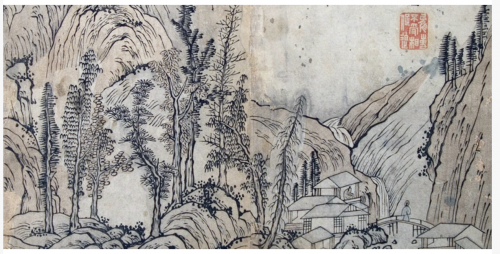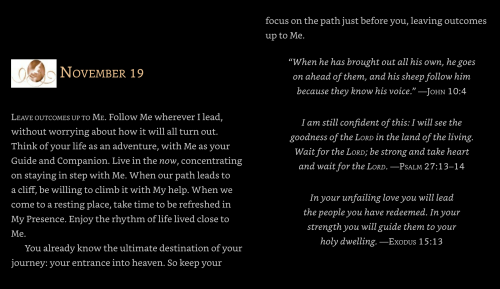
The Kingdom as Consciousness
Wednesday, November 18, 2020
In his letter to the Philippians, Paul offers a puzzling injunction to the new Christians. He writes, “Let the same mind be in you that was in Jesus Christ” (2:5). CAC faculty member Cynthia Bourgeault explores how developing this kind of “Christ-consciousness” is the key to understanding Jesus’s teaching on the “Kingdom of Heaven.”
How do we put on the mind of Christ? How do we see through his eyes? How do we feel through his heart? How do we learn to respond to the world with that same wholeness and healing love? That’s what Christian orthodoxy really is all about. It’s not about right belief; it’s about right practice. . . .
Jesus uses one particular phrase repeatedly: “the Kingdom of Heaven.” You can easily confirm this yourself by a quick browse through the gospels; the words jump out at you from everywhere. . . .
So what do we take it to be? . . . [Jesus] says, “The Kingdom of Heaven is within you” (that is, here) and “at hand” (that is, now). It’s not later, but lighter—some more subtle quality or dimension of experience accessible to you right in the moment. You don’t die into it; you awaken into it. . . .
The Kingdom of Heaven is really a metaphor for a state of consciousness; it is not a place you go to, but a place you come from. It is a whole new way of looking at the world, a transformed awareness that literally turns this world into a different place. . . The hallmark of this awareness is that it sees no separation—not between God and humans, not between humans and other humans. And these are indeed Jesus’s two core teachings, underlying everything he says and does. . . .
When Jesus talks about this Oneness . . . . what he more has in mind is a complete, mutual indwelling: I am in God, God is in you, you are in God, we are in each other. His most beautiful symbol for this is in the teaching in John 15 where he says, “I am the vine; you are the branches. Abide in me as I in you” [see John 15:4–5]. A few verses later he says, “As the Father has loved me, so I have loved you. Abide in my love” [John 15:9]. . . . There is no separation between humans and God because of this mutual interabiding which expresses the indivisible reality of divine love. . . .
No separation between human and human is an equally powerful notion—and equally challenging. One of the most familiar of Jesus’s teachings is “Love your neighbor as yourself” [Matthew 22:39] . . . as a continuation of your very own being. It’s a complete seeing that your neighbor is you. There are not two individuals out there . . . there are simply two cells of the one great Life.
Story from Our Community:
Clink, / This AND that. / My heart. / Mercy. / Now. / I am still, empty.
—Teresa B., written while sipping tea the morning after the U.S. election.
The Reign of God as Community
Thursday, November 19, 2020
The world has suffered much from the various forms of Christian colonialism. Yet the Reign of God is an alternative to domination systems and all “isms.” Jesus teaches that right relationship (i.e., love) is the ultimate and daily criterion. If a social order allows and encourages strong connectedness between people and creation, people and each other, people and God, then you have a truly sacred culture: the Reign of God. It is not a world without pain or mystery, but simply a world where we are connected and in communion with all things.
The Kingdom is about union and communion, which means that it is also about mercy, forgiveness, nonviolence, letting go, solidarity, service, and lives of love, patience, and simplicity. Who can doubt that this is the sum and substance of Jesus’ teaching? In the Reign of God, the very motive for rivalry, greed, and violence has been destroyed. We know we are all part of God’s Beloved Community.
Author, activist, and community organizer Lisa Sharon Harper describes it in this way:
Evidence of the presence of the Kingdom of God is thick wherever and whenever people stand on the promise of God that there is more to this world—more to this life—than what we see. There is more than the getting over, getting by, or getting mine. There is more than the brokenness, the destruction, and the despair that threaten to wash over us like the waters of the deep. There is a vision of a world where God cuts through the chaos, where God speaks and there is light. There is a vision where there is protection and where love is binding every relationship together.[1]
Jesus did not come to impose Christendom like an imperial system. Every description he offers of God’s Reign—of love, relationship, non-judgment, and forgiveness, where the last shall be first and the first shall be last—shows that imposition is an impossibility! Wherever we have tried to force Christianity on people, the long-term results have been disastrous. The Gospel flourishes in the realm of true freedom.
But it is a freedom we must choose for ourselves. It is almost impossible to turn away from what seems like the only game in town (political, economic, or religious), unless we have glimpsed a more attractive alternative. It is hard to imagine it, much less imitate it, unless we see someone else do it first. Jesus is that icon of the more attractive alternative, a living parable. Jesus has forever changed our human imagination, and we are now both burdened and gladdened by the new possibility. There is good news to counter the deadening bad news, but one first has to be turned away from a conventional way of understanding.
I do not think that Jesus ever expected that the whole world would become formally Christian, but his truth about right relationship and his proclamation of the power of powerlessness will save the world from self-destruction.
